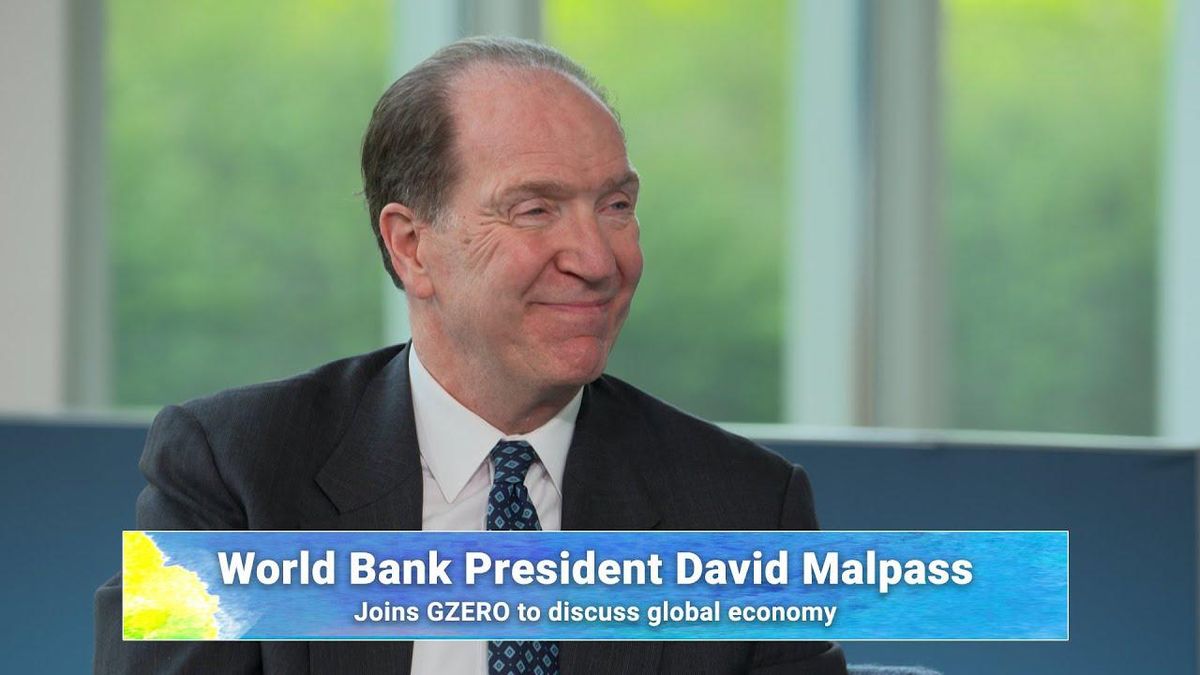Want to help poor countries now? Open your markets to their farmers, World Bank chief tells wealthy nations
Many developing countries now face high inflation, especially rising food prices.
What can they do to alleviate some of that pain? Wealthy nations should step in by opening their markets to farmers from poor nations, World Bank President David Malpass says during a Global Stage livestream conversation hosted by GZERO Media in partnership with Microsoft.
"This is a moment to make friends, to help people that ... don't have as much."
That means lifting trade barriers and subsidies that aren't really necessary so there can be more room for others to sell their stuff.
Malpass also recommends that all governments transition away from economic and fiscal policies that have spurred inflation toward encouraging boosting production and supply.
That's the best way to help small businesses, the most under pressure from high interest rates and the food price hike.
Watch more of this Global Stage event: Live from Washington, DC: Financing the Future
- Women in power — the World Trade Organization's Ngozi Okonjo ... ›
- The Graphic Truth: Global maritime bottlenecks - GZERO Media ›
- What saved the global economy from another Great Depression ... ›
- The Graphic Truth: US inflation just keeps on climbing - GZERO Media ›
- The Graphic Truth: Has climate change hurt or helped farmers ... ›
- Developing world left behind on COVID vaccine rollout - GZERO ... ›
- Climate, Biden, and signs of hope for 2021: World Bank's David ... ›
- The Graphic Truth: US inflation skyrockets - GZERO Media ›
- The Graphic Truth: US inflation slows a bit, but ... - GZERO Media ›
- The Graphic Truth: US inflation slows a bit, but ... - GZERO Media ›
- David Malpass: I'm not a climate denier - GZERO Media ›
- Podcast: The Ukraine war is crippling the world's food supply, says food security expert Ertharin Cousin - GZERO Media ›
- World faces "lost decade" of economic growth, says World Bank economist - GZERO Media ›

















